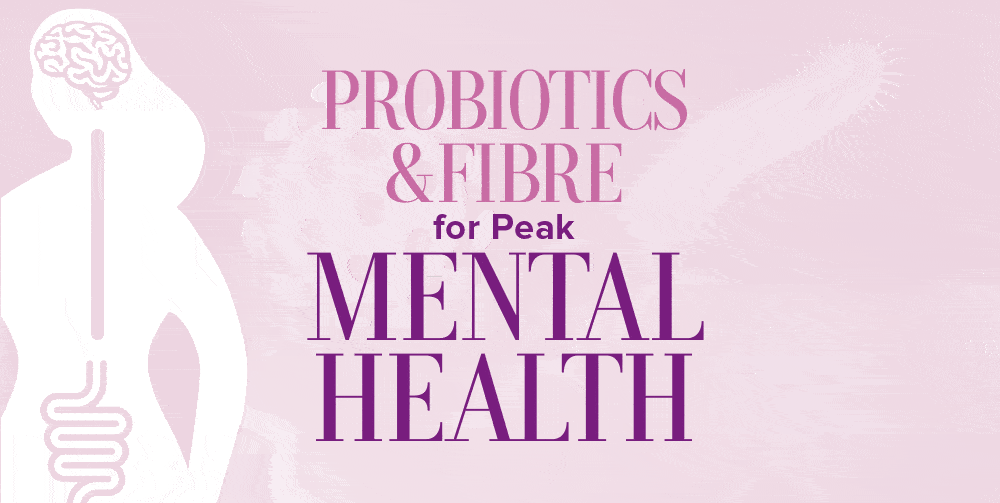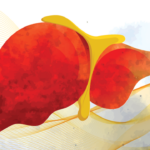
Depression, Irritable Bowel Syndrome (IBS), Anxiety, Bloating: What do these health issues have in common? Digestive and emotional health seem like strangers living in the same building, but these not-so-distant cousins can be intricately connected, and one may directly impact the other.
“Gut feelings,” butterflies in your stomach, and gut-wrenching reactions are all examples of our gut-brain connection at work. It is also responsible for your mouth salivating when you merely think of eating something sour, such as a lemon or a pickle, when neither is close! Also known as the gut-brain axis, it is the communication that occurs between the enteric nervous system in your gut and the central nervous system in your brain. A significant player in the gut-brain axis is the gut microbiome. The gut microbiome is the collection of microorganisms, namely bacteria, which live inside the human gastrointestinal tract.
Many recent studies reveal that this bacterial community is connected to a person’s mental health, and there is a link between gut health and the development of mental disorders such as depression and anxiety.
Digestive symptoms such as those found in IBS, which may include BLOATING, INDIGESTION, DIARRHEA, AND CONSTIPATION, can also be linked to a suboptimal microbiome. New observational data has shown than a higher-than-average number of people with IBS also develop depression and anxiety. Another study showed that fecal microbiota transplanted from depressed patients into rodents could induce certain features characteristic of depression in the recipient animals, such as anhedonia (the inability to feel pleasure) and anxiety-like behaviors!
Nutritional meals high in SOLUBLE FIBER, and supplementation with PROBIOTICS and PREBIOTICS help stimulate the growth of beneficial bacteria and can support both digestive and mental/emotional health.
Soluble fiber is found in grains such as oats and barley; fruits, vegetables, and legumes including apples, pears, avocados, broccoli, sweet potatoes, and beans. This type of fiber dissolves in water and is fermented by the large intestine’s bacteria.
Further to this, is PREBIOTIC FIBER, which is a soluble fiber with an extra ability of favorably changing the bacterial community in the gut. It can be found in foods such as Jerusalem artichoke, chicory root, garlic, onions, and bananas. When this category of fiber is fermented by our bacteria, short-chain fatty acids (SCFAs) are generated. SCFAs, in turn, provide energy for the cells that line the intestinal tract wall, but also influence serotonin production, a neurotransmitter responsible for a ffecting mood and may be reduced in depressed states. Strong evidence also suggests that prebiotics can help modulate emotional processes and certain stress responses that underlie anxiety by affecting brain-derived neurotrophic factor (BDNF) and cortisol.
I SHARE WITH MY PATIENTS THE IMPORTANCE OF A DAILY DIET FILLED WITH SOLUBLE FIBER, AND PROBIOTICS
In addition to prebiotics and soluble fiber, certain PROBIOTIC STRAINS support both our gut and brain. A combination of Lactobacillus helveticus R0052 and Bifidobacterium longum R0175 is clinically shown to balance the stress response both subjectively (how participants felt) and objectively (measured cortisol). In animal studies, oral probiotics increase BDNF, impart significant anxiety-reducing effects, and reduce inflammation in the brain.
Lastly, breaking the vicious cycle of GUT -BRAIN DYSFUNCTION needs to be addressed. For example, when a stressful event occurs and our bodies enter fight-or-flight sympathetic mode, our gut is directly impacted. Deep breathing, light exercise, and mindful meditation have been shown to help reduce the fight-or-flight reaction. Increasing GABA neurotransmitter levels in the brain support alpha brain waves, which contribute to a calm, collected, and present state of being.
PREBIOTICS + ENERGY + SEROTONIN, responsible for affecting mood and may be reduced in depressed states.
Optimizing gastrointestinal physiology and function are paramount to supporting a healthy body and mind. From anxiety and depression to inflammation and immune health, the systemic effects of a strong gastrointestinal tract are immense. I share with my patients the importance of a daily diet filled with soluble fiber, and probiotics for the prevention and maintenance of this vital foundation to our health.












